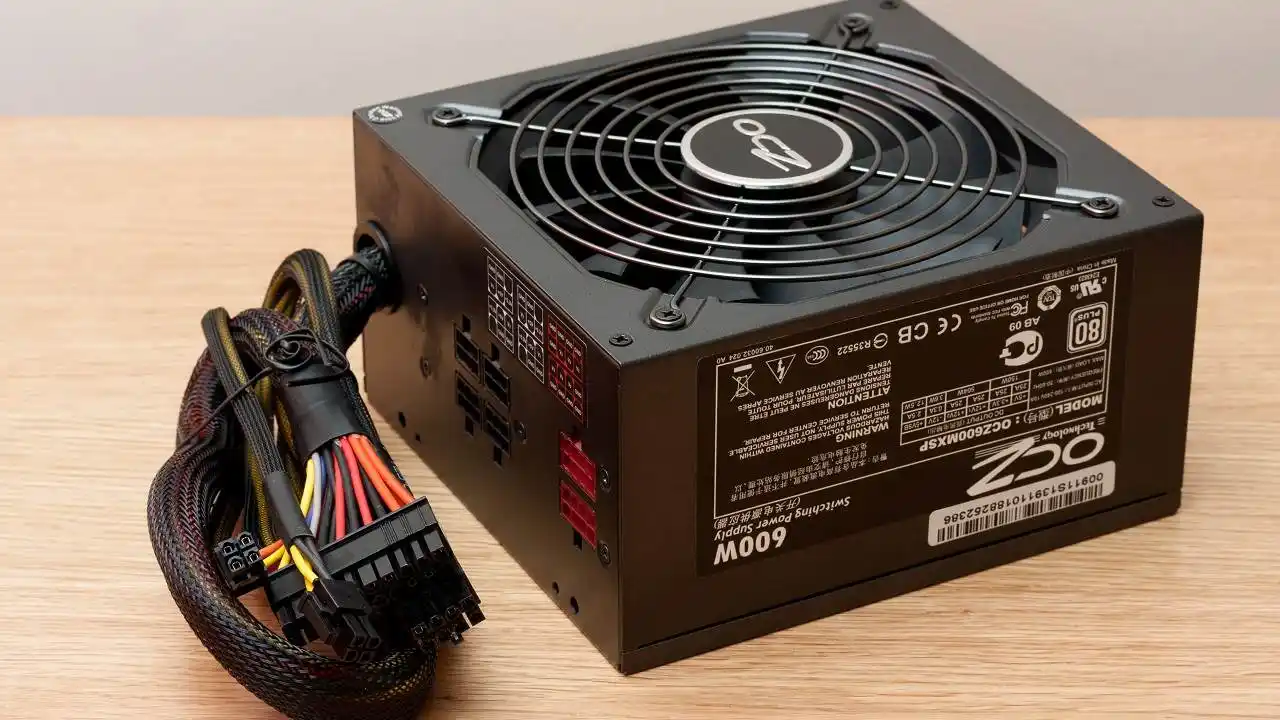There are a variety of factors to consider, ranging from wattage requirements to efficiency ratings and safety features.
Lets delve into the key factors that should guide your decision-making process.
The wattage rating indicates the maximum amount of power that the PSU can deliver to your machine components.

It is essential to choose a PSU with sufficient wattage to handle the power demands of your system.
Its crucial to be mindful of potential future upgrades or additions to your system.
Additionally, consider other power-hungry components such as hard drives, SSDs, optical drives, and RGB lighting.
One way to estimate your power requirements is by using online PSU calculators.
They provide a general guideline for selecting an appropriate wattage for your PSU.
Accounting for system efficiency, peak power demands, and potential future upgrades is advisable.
Choosing a PSU with higher wattage than your system requires can have some benefits.
Opting for a PSU with high efficiency can bring several benefits.
One of the primary advantages of a highly efficient PSU is energy savings.
By converting power more efficiently, these PSUs waste less energy as heat, resulting in lower electricity bills.
PSU efficiency is typically measured and rated by various certification programs.
The most common and widely recognized certification is the 80 Plus rating system.
A PSU with an 80 Plus Bronze certification or higher indicates that it has met stringent efficiency criteria.
The higher the certification level, the more efficient the PSU is expected to be.
Another factor related to efficiency is the load capacity of the PSU.
PSUs generally operate most efficiently within a specific load range.
Its important to note that PSU efficiency can vary depending on the load.
PSUs tend to be most efficient when operating between 50% and 80% of their maximum rated load.
When researching and comparing PSUs, pay attention to the efficiency ratings and certifications provided by reputable manufacturers.
PSUs come in different form factors, and selecting the appropriate one for your build is crucial.
ATX PSUs are suitable for standard-sized desktop cases and motherboards.
However, its necessary to ensure that the PSU dimensions match the available space in your case.
When selecting a PSU form factor, its also necessary to consider compatibility with your motherboard.
Most PC motherboards are designed to be compatible with ATX PSUs.
Moreover, its crucial to ensure that the PSU you choose has the necessary cable connections for your components.
While most PSUs come with standard connectors, its essential to verify that they match your specific requirements.
Additionally, consult the documentation of your box case and motherboard to verify the compatible PSU form factors.
Different components require specific power connectors, and having the necessary connectors is crucial for a successful build.
Graphics cards, especially high-end ones, often require PCIe (Peripheral Component Interconnect Express) power connectors.
These connectors supply additional power to the graphics card to ensure stable and reliable performance.
In addition to SATA and PCIe connectors, the PSU should also provide the necessary CPU power connectors.
Modern processors typically require an 8-pin or4+4-pin CPUpower connector.
Verify the power requirements of your processor and ensure that the PSU has the corresponding CPU power connectors.
Modular and semi-modular PSUs offer additional flexibility when it comes to cable management.
These PSUs allow you to connect only the necessary cables, reducing cable clutter inside your system.
This not only improves airflow but also makes the installation and maintenance process easier.
However, keep in mind that modular PSUs may be more expensive than non-modular ones.
When selecting a PSU, consider the length of the cables as well.
While not essential for functionality, these cables can contribute to a cleaner and more visually appealing setup.
Opting for PSUs from reputable brands has several advantages.
Reputable brands also tend to have better customer support and warranty services.
Pay attention to feedback from other users who have firsthand experience with the PSU models you are considering.
This can provide valuable insights into the real-world performance and reliability of the PSUs from different brands.
While brand reputation is an essential consideration, it is not the only factor to base your decision on.
PSU fans are responsible for cooling the internal components and dissipating heat generated during operation.
However, some PSUs may produce noticeable fan noise, especially under heavy loads.
If a quiet working environment is important to you, consider PSUs that are designed for low noise operation.
Additionally, some PSUs feature fanless designs, eliminating fan noise altogether.
PSUs with efficient cooling mechanisms help maintain stable operation and increase the longevity of your components.
Additionally, PSUs with 80 Plus certification often have more efficient power conversion, resulting in reduced heat generation.
When researching and comparing PSUs, take note of the noise level ratings provided by manufacturers.
Lower noise level ratings indicate quieter operation.
Its important to strike a balance between cooling performance and noise level based on your specific needs.
Overload protection is a critical safety feature provided by most modern PSUs.
Short circuit protection is another essential safety feature to look for in a PSU.
Power surge protection is an important safeguard against sudden voltage spikes or power surges from the electrical grid.
These surges can damage or destroy sensitive components, such as the motherboard, processor, and graphics card.
This feature can help prevent instability, data corruption, and component failure due to inadequate power supply.
These safety measures provide added peace of mind and protect your investment in computer components.
These certifications indicate that the PSU has undergone rigorous testing and meets specific safety standards.
The efficiency and certification of the PSU impact energy savings, heat generation, and long-term cost-effectiveness.